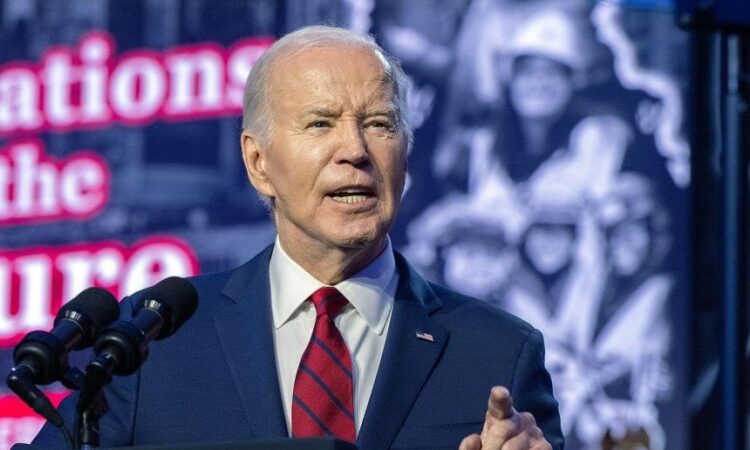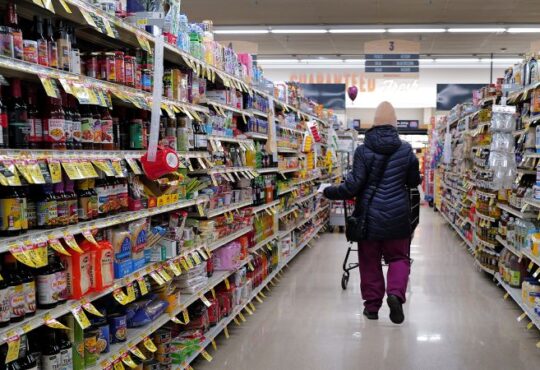
WASHINGTON – The US economy is resilient, and it’s bad news for US President Joe Biden.
Given time to digest April 25’s gross domestic product (GDP) report, most economists looked past the weak headline number and declared the underlying momentum of the US economy remained strong. But growth and jobs – which have been surprisingly sturdy for more than a year – have generated little tangible benefit to Mr Biden’s hopes for re-election.
What they did generate was more of the one thing that has truly stung Mr Biden: inflation.
“This is a lose-lose for the President,” said Mr Stuart Paul, an economist at Bloomberg Economics. “He doesn’t get to realise the benefit of the hot growth because it’s coming at the cost of high inflation and interest rates. This economic resilience is – borderline – a problem for Mr Biden.”
The report comes at a perilous time for the president’s campaign. Americans were already sour on economic conditions, and research suggests that voters begin to make up their minds about the direction of the US economy about six months before an election – right about now.
A Bloomberg News/Morning Consult poll of voters in seven battleground states in April showed that more than half expect the US economy to be worse by 2024. And at least half of voters say they expect the inflation rate and borrowing costs to rise even higher than they are now.
As a result, the Biden campaign has largely retired the “Bidenomics” branding that used to define his economic case for re-election, and is emphasising issues like abortion rights and protecting democracy.
Even though Mr Biden has been inundated with unfavourable polls showing him trailing former US president Donald Trump in key states and predicting a November general election loss, at least one widely trusted economic model offers him hope.
Economist Ray Fair of Yale University said his model shows economic fundamentals suggest Mr Biden remains on track to win the popular vote even amid decelerating growth and persistent high inflation. The model, which has been mostly successful in predicting the outcome of presidential elections since 1980, implies a 51.7 per cent vote share for Mr Biden head-to-head against Trump.
Inflation revived
How different it seemed just three months ago. An aggressive campaign of interest-rate increases by the US Federal Reserve appeared finally to be bringing inflation to heel. After peaking above 7 per cent in June of 2022, the US central bank’s favourite gauge of prices, the personal consumption expenditures index (PCE), tumbled all the way to 2.4 per cent in the 12 months through January.
Remarkably, the drop in inflation came without damaging growth or employment. GDP outpaced all predictions by expanding 2.5 per cent in 2023, and unemployment wowed forecasters by remaining below 4 per cent.
Unfortunately for Mr Biden, the decline of inflation in the US now looks badly derailed. Monthly inflation figures since January have largely flattened. And the April 25 report showed that core PCE – which excludes volatile food and energy – rose by an annualised 3.7 per cent in the first quarter, its first acceleration in a year.




